
1 FABRICS AND LAYERING REFLECTED SOCIAL STANDING
The types of material used in clothing reflected the hierarchy of Tudor society. Linen and wool were worn by all people, with the best types of wool and silk reserved for the wealthiest. In the 16th century, an ordinary woman would wear a kirtle over a linen undergarment called a smock; a wealthy woman might also wear a petticoat. A kirtle comprised top and bottom sections - a slit and laced bodice, incorporating stiff canvas for support, plus a full skirt with a front slit fitted to each woman's measurements, with different tailors catering to rich and poor.
More affluent women displayed their wealth through layered clothing and underneath such finery as crimson silk petticoats. Men's underwear took the form of a long shirt and tightly fitted leg coverings known as hose, which was cut on the bias of the fabric to give it elasticity. By the end of the Tudor era, full-leg hose had evolved into knee-length breeches made from leather, wool or silk, depending on the individual's status and wealth.
2 THE CODPIECE WAS THE ULTIMATE MEN'S ACCESSORY
Increasingly popular from the mid-15th century, codflaps and codpieces served a functional purpose by fastening the bias-cut hose and covering the crotch area. Gradually, they evolved into elaborate fashion statements: wealthy men flaunted codpieces adorned with ornate decoration.
Although the precise reason for their increasingly extreme protuberance is unknown, codpieces combined function with fashion, catering to both comfort and societal expectations of display.
Surviving examples indicate a range of styles, from opulent to extremely simple. The popularity of codpieces ebbed by the late 16th century, but they remain intriguing artefacts, reflecting the interplay of function, culture and style during the Tudor period.
3 TUDORS WORE CONVENTIONAL GARMENTS
This story is from the October 2023 edition of BBC History Revealed.
Start your 7-day Magzter GOLD free trial to access thousands of curated premium stories, and 9,000+ magazines and newspapers.
Already a subscriber ? Sign In
This story is from the October 2023 edition of BBC History Revealed.
Start your 7-day Magzter GOLD free trial to access thousands of curated premium stories, and 9,000+ magazines and newspapers.
Already a subscriber? Sign In
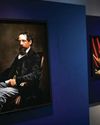
'Dickens's evocation of the fears, excitement and confusion of childhood is peerless'
DR LEE JACKSON ON WHY CHARLES DICKENS REMAINS RELEVANT TODAY
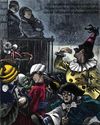
THE AUTHOR GOES ABROAD
Dickens expanded his horizons and boosted his fan-base by venturing overseas - but global fame came with a cost
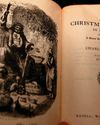
REVIVING THE FESTIVE SPIRIT
A Christmas Carol wasn't just a bestseller - it changed the way that Britons chose to mark the festive season
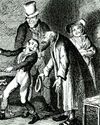
GIVING THE POOR A VOICE
From Hard Times to Oliver Twist, Charles Dickens used his pen to help illuminate the lives of the less fortunate
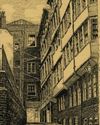
A JOURNEY THROUGH DICKENS'S LONDON
The works of Charles Dickens are synonymous with visions of Victorian London. We talk to Dr Lee Jackson about the author's love of the capital, and the locations that most inspired him
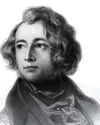
EXCEEDING EXPECTATIONS
Dr Lee Jackson chronicles Charles Dickens's journey from down-at-luck teenager to titan of Victorian literature
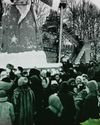
GIFTS, TREES & FEASTING
We take a journey through the photo archives to reveal how Christmas and its many traditions have been celebrated over the years - and around the world
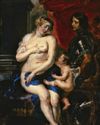
WHAT GREAT PAINTINGS SAY
We explore the story behind an allegorical painting that celebrates the triumph of love over hate, peace over war
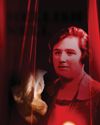
HELLISH NELL
Malcolm Gaskill delves into the life of Helen Duncan - the fraudulent Scottish medium whose ectoplasm-filled seances saw her ending up on the wrong side of the law

7 THINGS YOU (PROBABLY) DIDN'T KNOW ABOUT THE WHITE HOUSE
Presidential historian Dr Lindsay M Chervinsky reveals some of the most surprising facts about the world-famous US residence